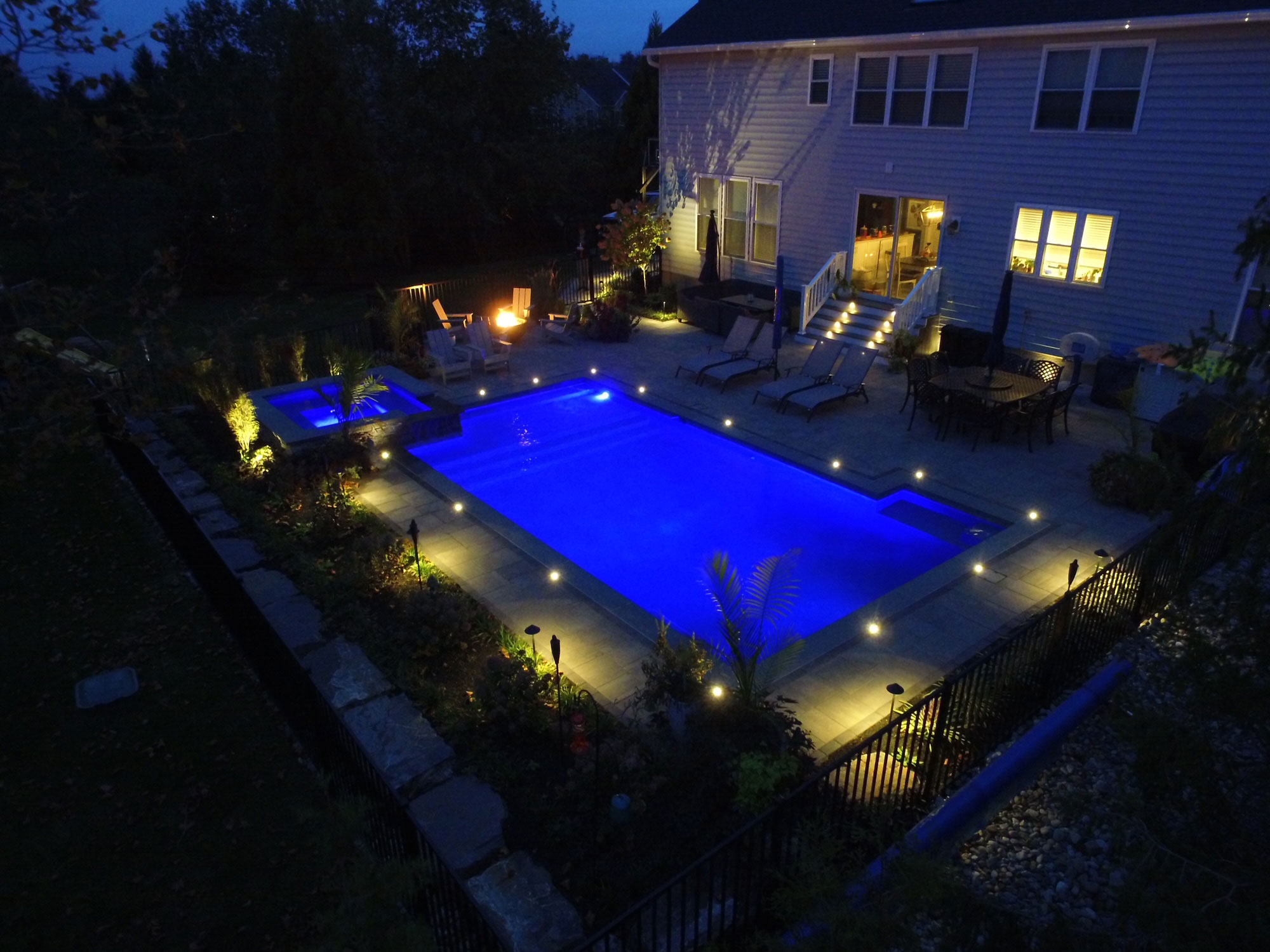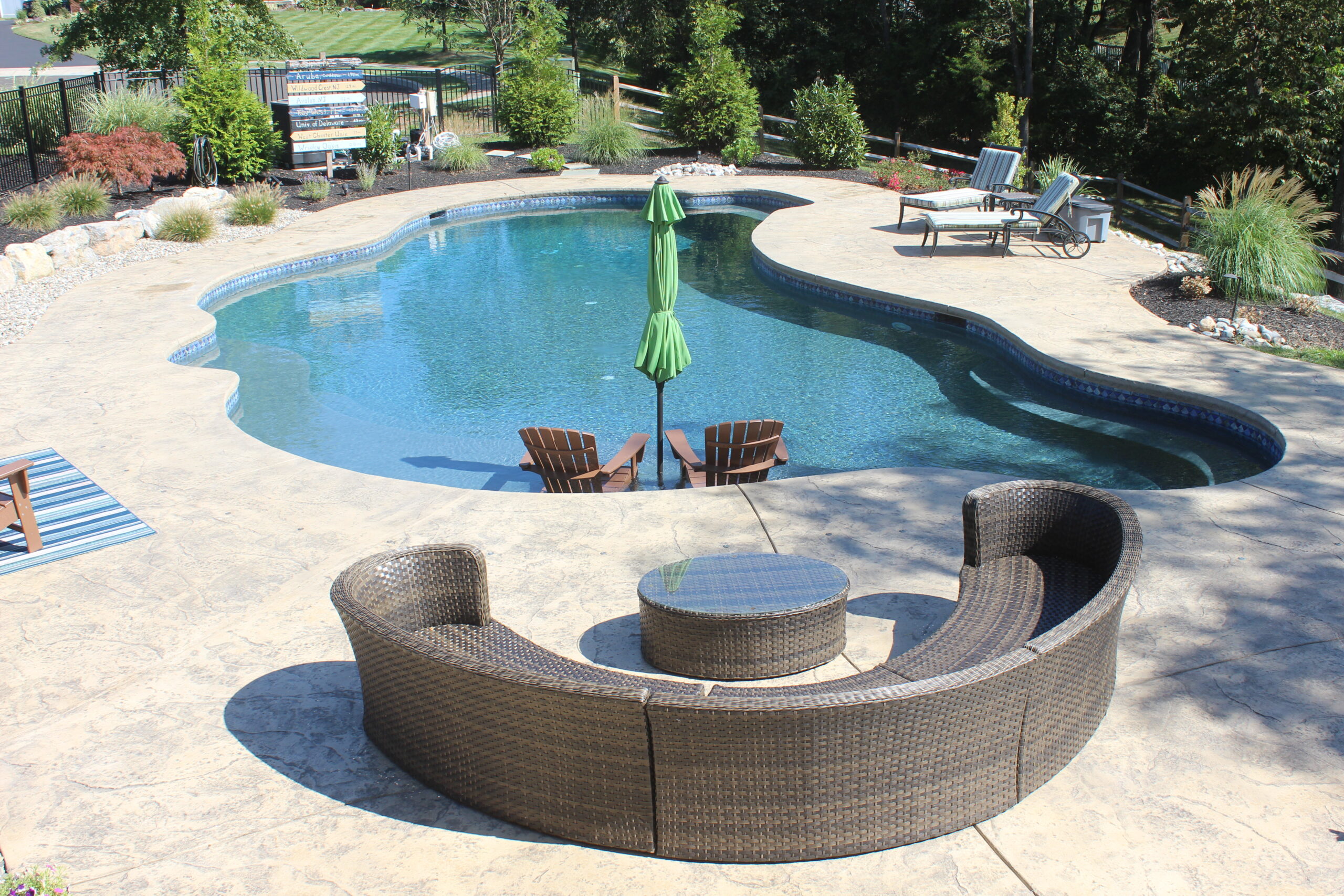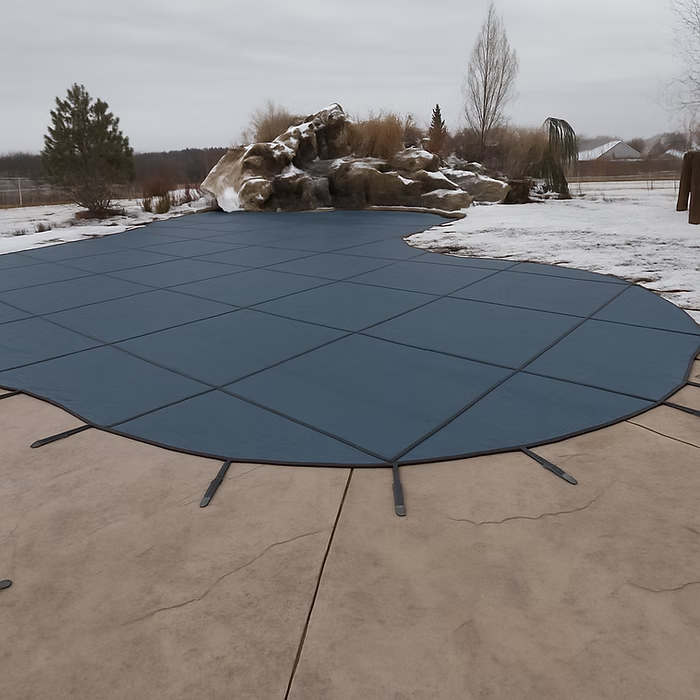When you have a pool, testing the water is an essential part of its maintenance. You need to ensure the chlorine levels are right and the pH balance is on point. The other chemistry readings you’ll need to test for include calcium hardness, cyanuric acid, total dissolved solids, total alkalinity, phosphates, and metals; however, these will not need to be checked as often. Read on to learn more about these important tests.
What Are Expected Chemical Levels?
When you test your pool’s chemistry, there are expected levels for each of the tests you will run. These are the results you should find:
- pH: 7.4-7.6
- Phosphates: 0 ppm
- Metals: 0 ppm
- Calcium Hardness: 200-400 ppm
- Total Dissolved Solids: 0-2500 ppm (non-salt water pools)
- Bromine: 3.0-5.0 ppm
- Free Available Chlorine: 2.0-4.0 ppm
- Total Alkalinity: 80-120 ppm
- Cyanuric Acid: 30-50 ppm
How Frequently Does Pool Water Need To Be Tested?
You should test your pool water approximately once weekly. As you see an increase or decrease in chemical levels, you’ll need to add the appropriate chemicals to counteract the changes.
pH and Chlorine should generally be tested more frequently, even as often as daily. This will allow you to have insight into how they change on a day-to-day basis. The other chemistry readings tend to change much more slowly, which means you can check them on a weekly basis or even monthly in some cases to keep custom pools in Pennsylvania in top condition.
How Can I Test My Pool Water?
Before pulling your water sample, you’ll need to run your pump for at least 15 minutes, but one hour is better. Sampling stagnant water will not give as clear of a reading as circulating water. You’ll also need to ensure you gather the sample from around 18” deep. Taking from near the surface may alter the results. In addition, avoid sampling near chemical dispensers or returns.
There are several types of tests you can use. Each has a varying cost and different mechanism.
For pool test strips, you’ll dip a strip in your collected sample, shake off the excess water, and have a reading within seconds. They come in different forms, some with multiple tests on one strip. This allows for easy reading and convenience.
Liquid test kits are a highly accurate option and provide better results than test strips. They use reagents added to the water sample. Results are based on the number of drops added and the color the water turns.
Digital pool testers are highly accurate but are the most expensive option of the three. They take the error out of testing and provide quick results.
Turn to the Best When You Need a New Pool
If you’re searching for inground fiberglass pools in PA, look no further than Scott Payne Custom Pools. We have all the options you need to make your backyard a summer paradise. Visit our website today to see our vast selection of pools.




